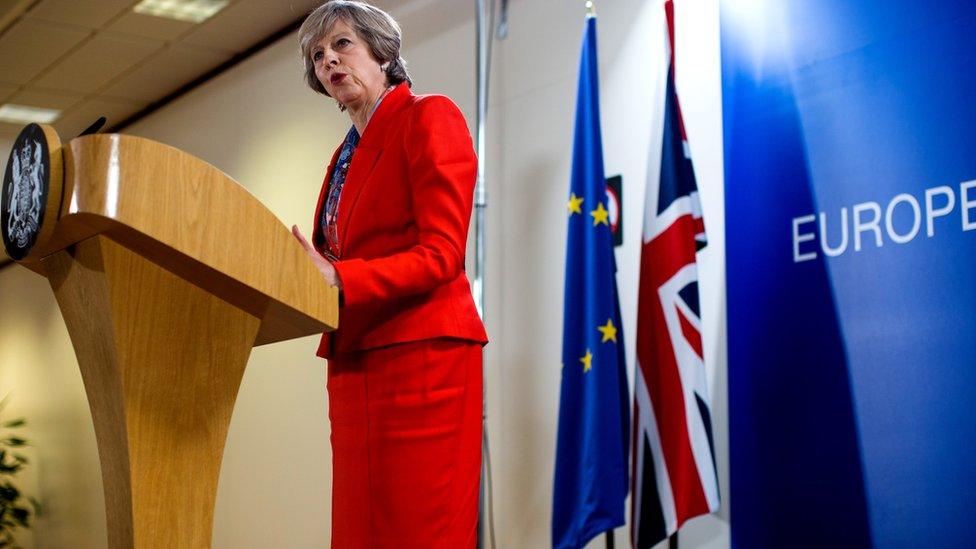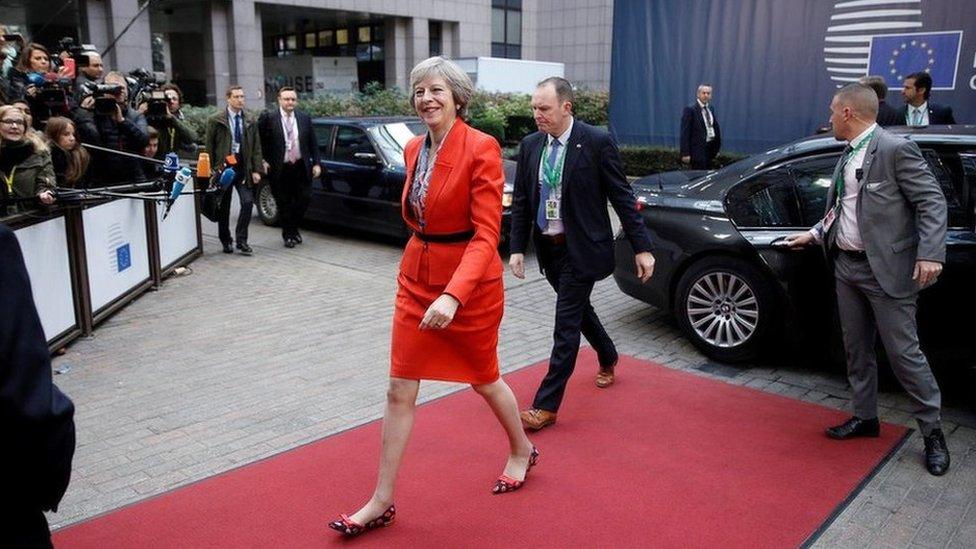Keeping the UK's flame alive in Brussels
- Published

"She knows the corridors," said one EU leader. Theresa May is certainly no stranger to getting things done in Brussels.
And she is rarely, if ever, underprepared, arriving into each meeting clutching her folder with carefully colour coded and prepared sections.
But can anything have really prepared the prime minister for this summit? She came here promising a "smooth Brexit" but it has been a bumpy affair.
There's been anger in some quarters at her insistence that the UK must still be fully included despite the fact we're leaving. And blunt warnings from other leaders that the negotiations will be very hard going.
The prime minister will hardly be surprised, and she is hardly a delicate flower. As she made clear in the last 24 hours she has "not been backwards at coming forwards". And this was never going to be the summit where any details were discussed or any real progress was made.
But it's abundantly clear now that not only will the process of leaving be difficult, but also that Britain's wishes are simply not a priority in the long drab corridors of the EU Council.
So there's a danger for Theresa May's government not just that it will drown in the complexity of it all and lose arguments because of the frustrations of other countries, but that Britain's power and influence have already started to drain away.
Who really listens to the colleague who has already resigned in meetings? Which husband or wife really wants to take the wishes of their grumpy spouse into consideration once they have asked for a divorce?
That tricky psychology is at the root of the problems that lurk ahead. That explains why at this first summit Theresa May did not just set about playing nice, but sought to remind her colleagues that their ties to Britain are still worth something.
Her intervention in one of the sessions yesterday demanding that Britain still be fully included had been carefully (guess what?) prepared.
Particularly on defence and security, which just happen to be her speciality, the more she can convince her colleagues that our contributions are valuable, a hard-headed desire to preserve the ties that are useful might overcome the current hostility.
Theresa May might also perhaps have to remind some of her ministers that they are still expected to do that job too. One senior source told me that UK ministers are "standing aside in existing meetings already".
If we lose our relevance in Europe before we head for the door then our bargaining power falls away. The prime minister's task is not just the intensely fraught task of deciding what Brexit looks like, managing political pressures here and at home, but to preserve as much of our current influence as possible.
Even "knowing the corridors" and long years of experience might not cover all of that.
- Published21 October 2016
